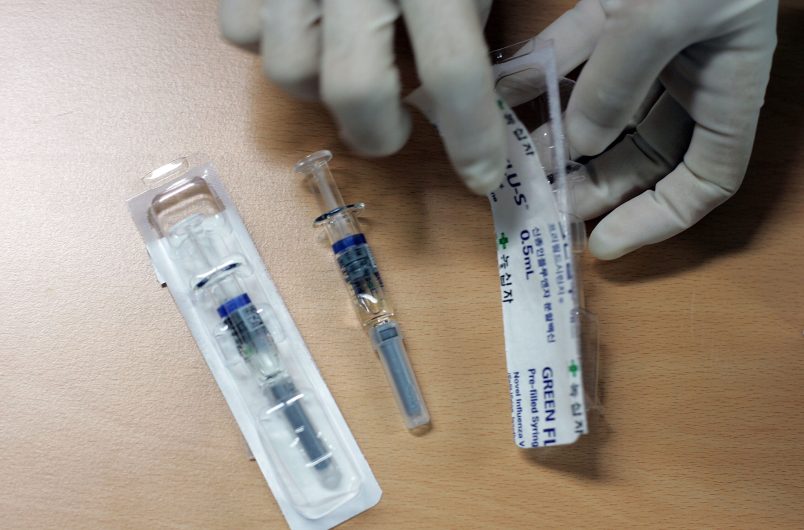Pfizer said that it would likely seek emergency approval for a COVID-19 vaccine in late November, citing recent federal guidance that toughened approval standards for a vaccine, despite President Trump’s efforts to push for a shot by the “special day” of Nov. 3.
In an open letter released Friday, Pfizer CEO and Chairman Albert Bourla said that “assuming positive data, Pfizer will apply for Emergency Authorization Use in the U.S. soon after the safety milestone is achieved in the third week of November.”
President Trump has boosted the prospect of a pre-election vaccine as Nov. 3 inches closer, saying that one would be ready by that “special day” and that a preventative COVID-19 shot would be available “within weeks.”
Out of the three vaccine candidates in mass, phase III trials, Moderna had already committed to asking for emergency approval in late November. Trials for a vaccine produced by AstraZeneca remain frozen by the Food and Drug Administration after a neurological issue was discovered in a trial participant in the UK.
That left Pfizer with the last, potential pre-election vaccine approval. Bourla had said that the company could submit for approval in late October based on data showing that enough people in a trial group that had received a placebo version of the vaccine had gotten COVID-19 compared to the group that received the actual shot.
Bourla reiterated that he believed the company would likely know whether its vaccine candidate is effective by the end of this month. But he added in the letter that the new FDA safety standards would push the company to ask for emergency approval in late November.
“FDA is requiring that companies provide two months of safety data on half of the trial participants following the final dose of the vaccine,” Bourla wrote. “Based on our current trial enrollment and dosing pace, we estimate we will reach this milestone in the third week of November.”
Pfizer’s vaccine requires two shots, taken 21 days apart. It needs to be stored at sub-zero temperatures, creating logistical headaches in how to effectively ship and store doses so that millions of Americans can be inoculated.
That requires a massive amount of spending both by state and local governments and by federal agencies like the Centers for Disease Control. Money for vaccine distribution was allocated in drafts of the stimulus bill that has not yet been passed, amid opposition from Senate Republicans and inchoate negotiating tactics from the President.
Without further data on how effective the vaccine is and how long immunity from it may last, it’s also difficult to know what impact any of the shots currently in phase III trials will have on controlling the pandemic.
Though President Trump and others have portrayed it as a silver bullet in bringing the rampaging deadly virus to an end, epidemiologists and vaccine researchers tend to portray any COVID-19 vaccine more as one effective tool among many in the fight against the spread of the disease.
Dr. William Schaffner, professor of preventative medicine at Vanderbilt University, told TPM in an interview last month that the vaccine would not singlehandedly end the pandemic.
“There’s this unstated hope that the day the vaccine is approved, we can stop all the social distancing and mask wearing. That’s wrong,” Schaffner said. “People are going to be shocked that they’ll be asked to wear the mask continually, even after it’s distributed.”
The FDA has said that it will approve any safe vaccine that is more than 50 percent effective. The efficacy of any of the vaccine candidates in trials has yet to be determined.






